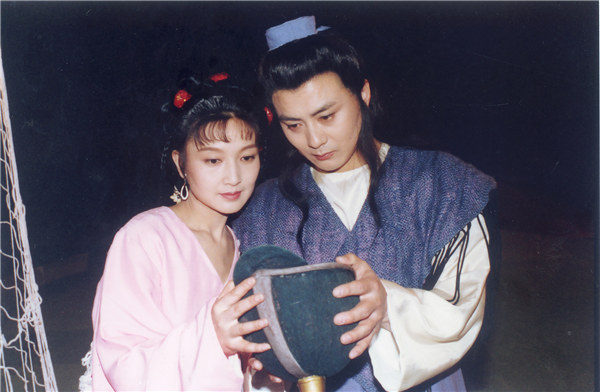Opera form banks on innovation
By Zhang Kun in Shanghai | China Daily | Updated: 2019-07-27 09:25

Luo's 1993 Huaiju play, The Golden Dragon and the Mayfly, in which Liang took the lead role, is widely recognized as a masterpiece in China's modern theater history.
Luo is now the vice-chairman of the China Theater Association. He used to say that Liang's performance "marked the ultimate artistic achievement for his generation of Chinese folk opera artists", though he is not so well known because Huaiju Opera has limited appeal around China.
As the most respected Huaiju artist in China, Liang believes it is his responsibility to revitalize Huaiju by introducing the traditional opera to young audiences, and keep creating quality productions.
Huaiju stands out in the folk opera scene of Shanghai as "simple and unadorned, and a little rustic", says Liang. "This characteristic means it is suitable for heavy realistic plays such as Mr Wu Xun."

After the play was premiered in Shanghai, Mr Wu Xun was performed in Beijing first at the Mei Lanfang Grand Theater, and then on campus of Peking University, introducing Huaiju and the creativity of traditional folk opera in China to young students.
Speaking about his award, Liang says: "I feel unworthy of the grand Wenhua prize, because there are so many outstanding productions from all over the country.
"But on the other hand, Huaiju Opera was in need of this prize, and so is Shanghai Huaiju Opera Troupe."
Huaiju Opera, although it originated in Jiangsu and Anhui provinces, flourished in Shanghai in the 20th century. The Shanghai Huaiju Opera Troupe, which was founded in 1953, is the largest institution for the opera in China, with more than 300 productions and national awards to its credit.
Liang says: "There was the time when we would perform a play for a year and half, seven days a week, always to full houses.
"For a long period the man in charge of the box office in our troupe would cautiously avoid any chairperson of the workers unions from the factories, because he could not satisfy their demand for theater tickets."
























